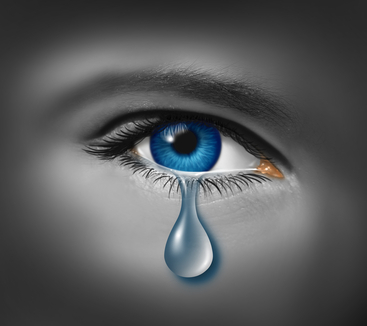The Power Dynamic
The third topic in our 'sexual abuse and mental health' series
By Rebecca Mitchell
It is my experience as both a Survivor and a counsellor (working with Survivors for over 18 years) that one of the main reasons that victims carry so much shame, is that they can often look back at the situation as adults and feel they could have or should have done something differently to prevent it happening.  They forget as children that they had very little power. They imagine that the choices they had as children are the same as the ones available now. Survivors also make choices because it was then in their best interest to do so at that time. They later feel (and this is often inferred by the abuser as well) that this means they somehow colluded in the abuse. This intensifies the shame and mental trauma.
They forget as children that they had very little power. They imagine that the choices they had as children are the same as the ones available now. Survivors also make choices because it was then in their best interest to do so at that time. They later feel (and this is often inferred by the abuser as well) that this means they somehow colluded in the abuse. This intensifies the shame and mental trauma.
In order to start being free of this it is critical to understand that abuse is largely about power and intention. To help relieve shame in your own mind, it is important clarify right from start of the abuse – the intention of the child or young person and the abuser’s intention. It is vital to remember this even though there may have been exchanges. This could have been of sweets, affection or money but as a child or young person - sexual involvement or gratification was never that child’s original intention.
Some questions you might like to consider could be:
- Critically – who had the real power in that situation?
- Who originally initiated things?
- What was your fundamental motive as a child when you met this person?
- What was the abuser’s primary motive?
- Who was leading?
- Who was being led?
- Did you do things just to “get it over” with?
- If this person gave you affection did you get much attention elsewhere in your life?
- If you accepted sweets or money did you really understand what was happening? And what the price would have to be for you?
- If you could have told someone – who realistically would have helped you?
It is important to note even if your answers do not make you feel absolved of shame, abuse can make you feel things and act in ways alien to you, this does not make you responsible for another's actions or change who you really are.
It is also critical to understand abuse and shame exist in an environment of secrecy and the way out of shame (that is any shame!) is to talk about it. However this is often the very action that victims of abuse fear the most. Sharing these “secrets” though, in a trustworthy supportive environment frees the burden of carrying it alone and helps put the shame back on the correct person - the abuser - and the journey of mental and emotional recovery can really begin. This sharing could be in a recovery group, a counsellor, through close friends or a combination of these.
Please also see:





